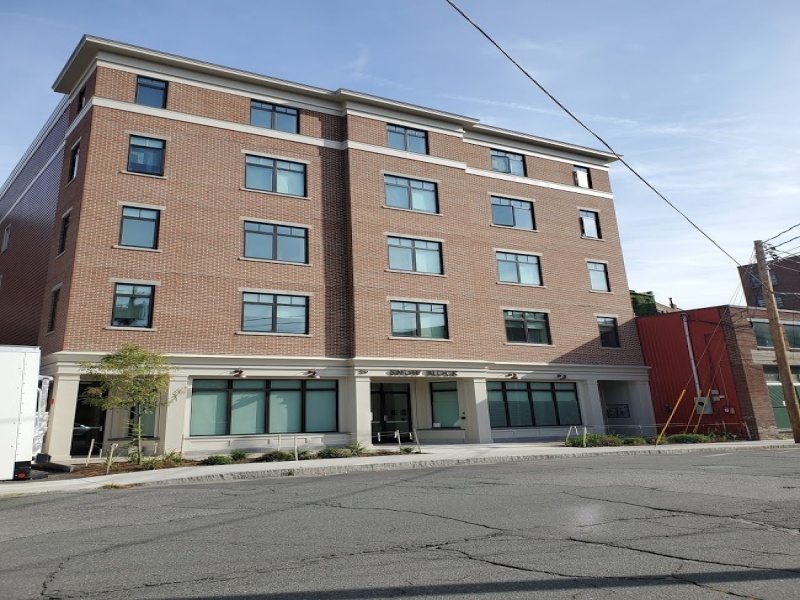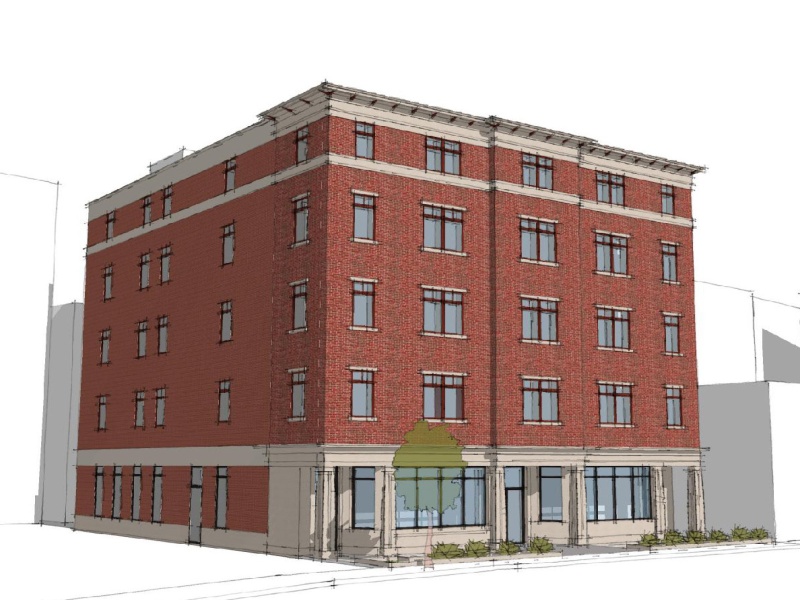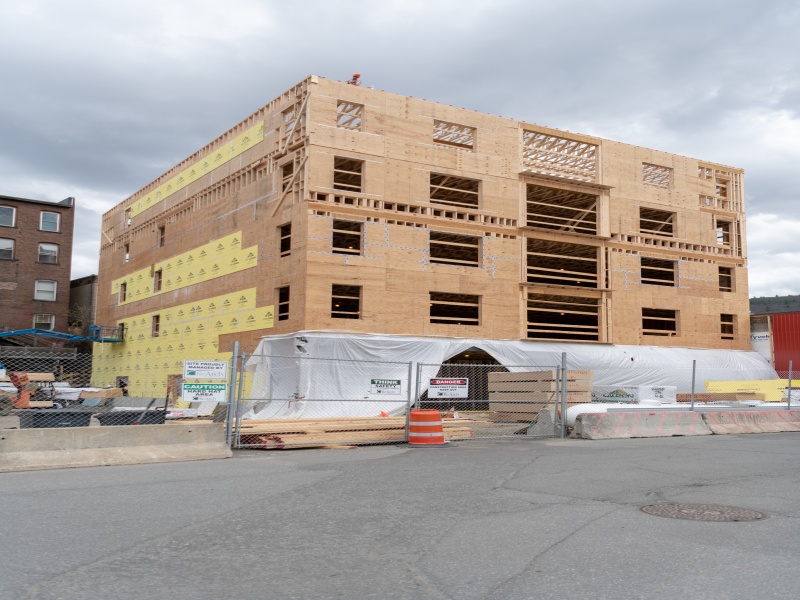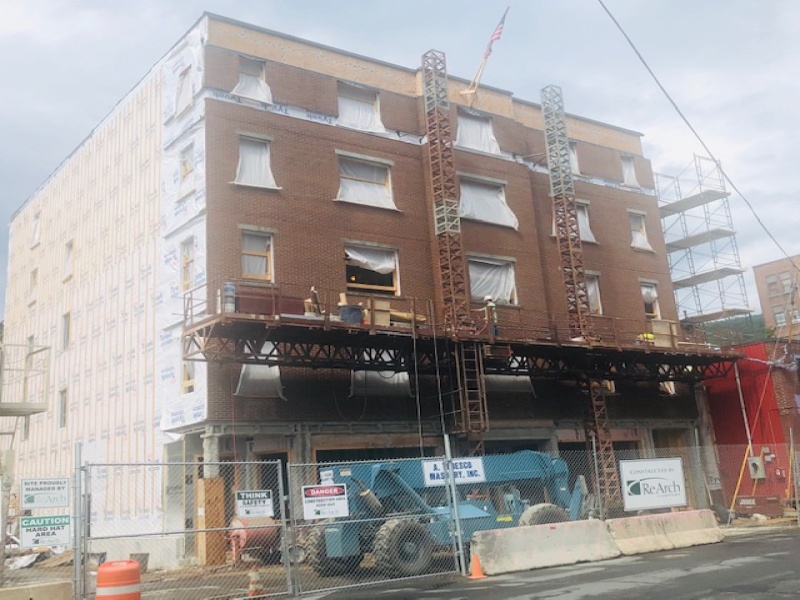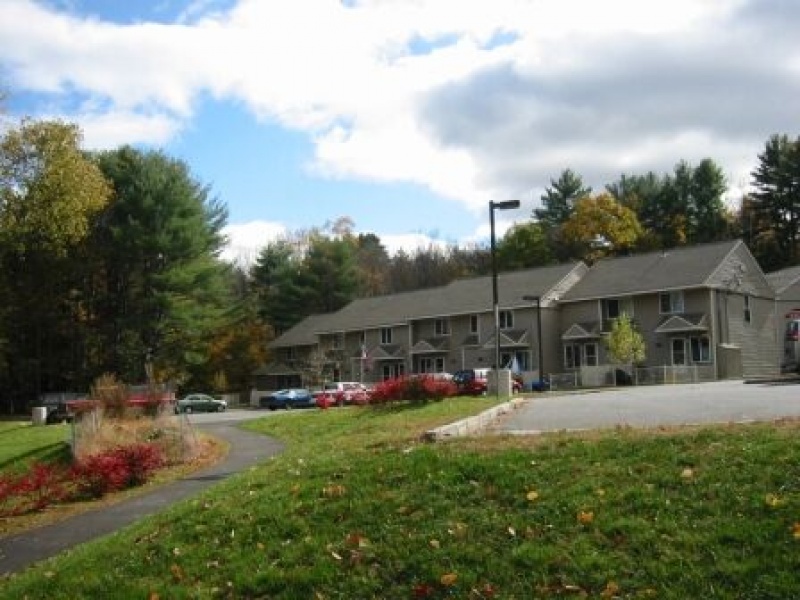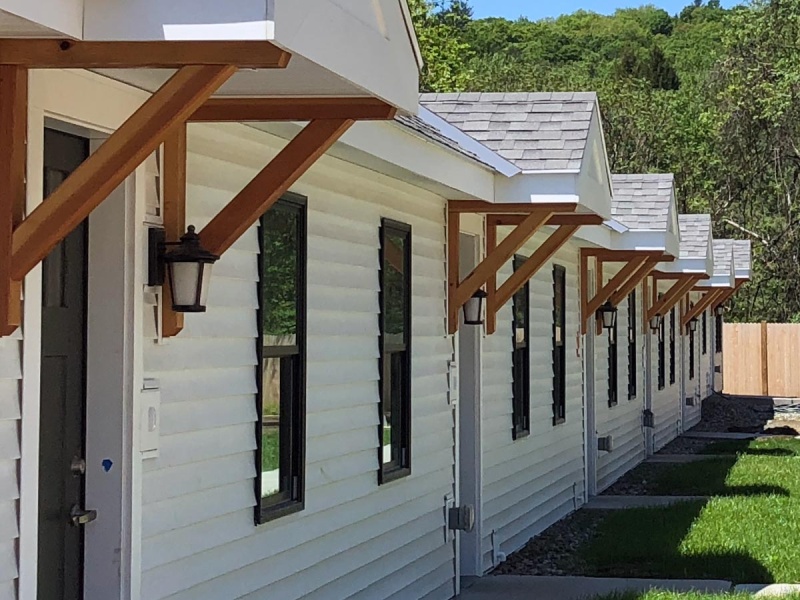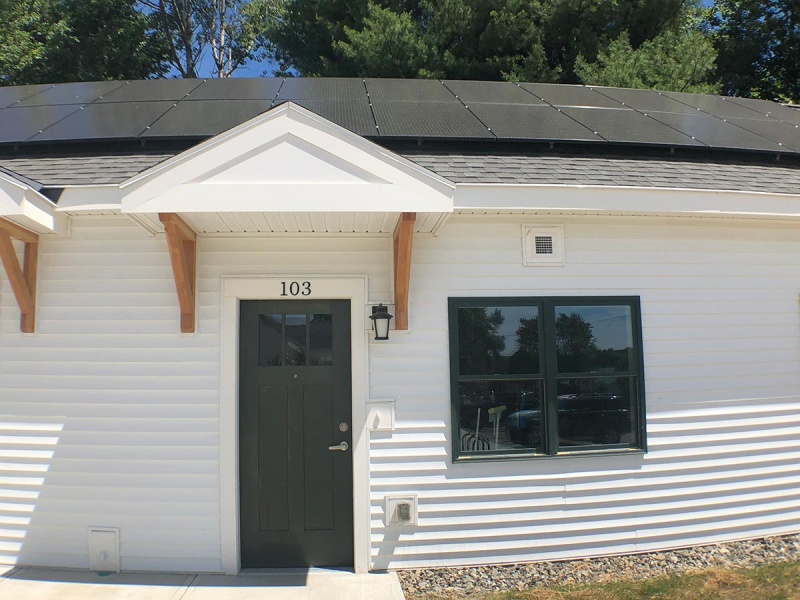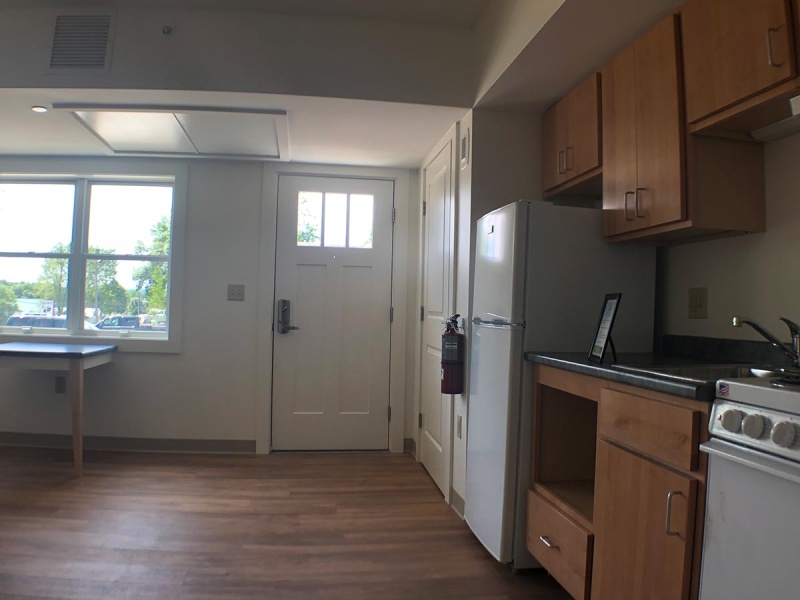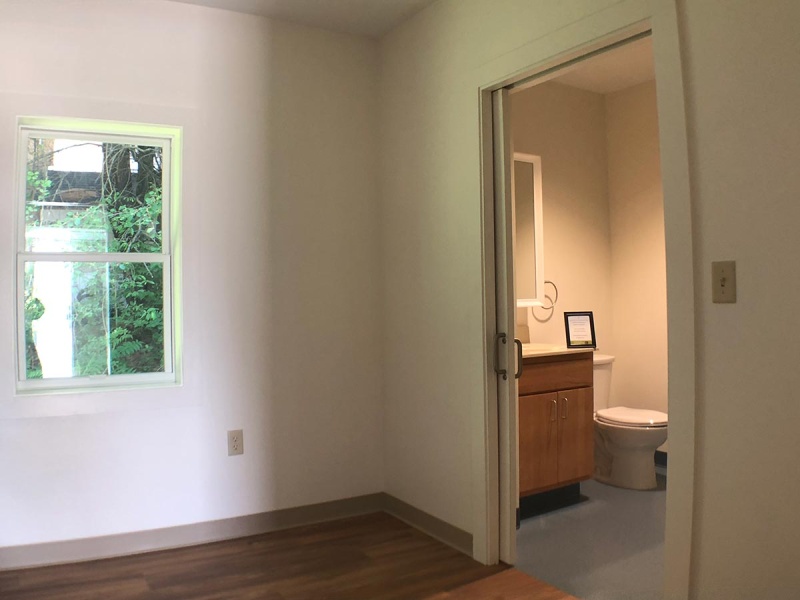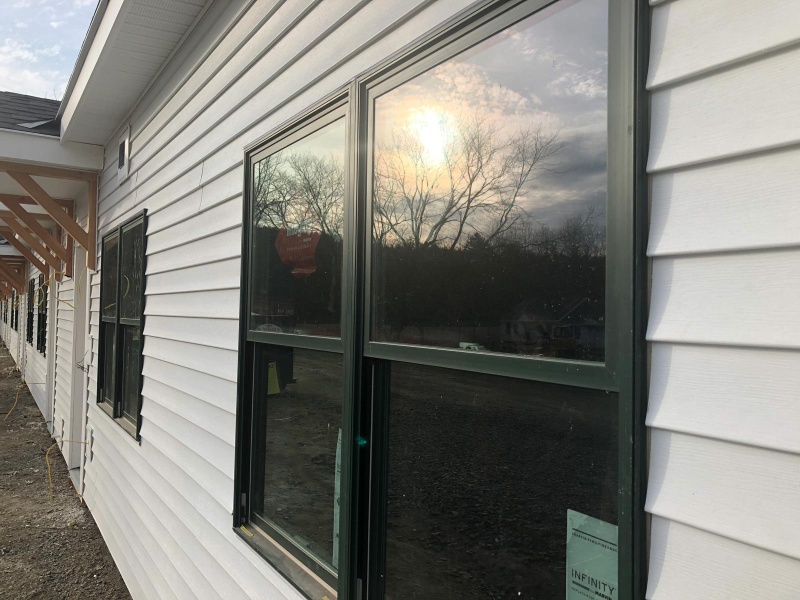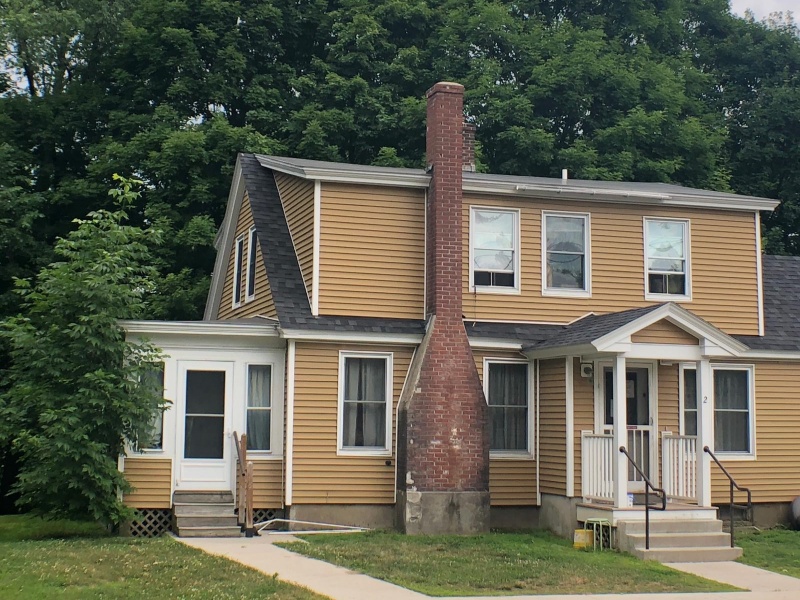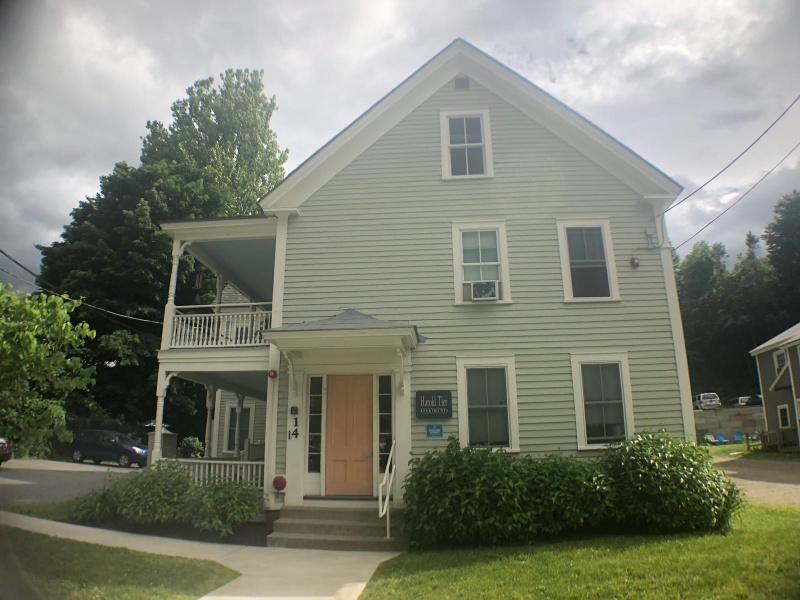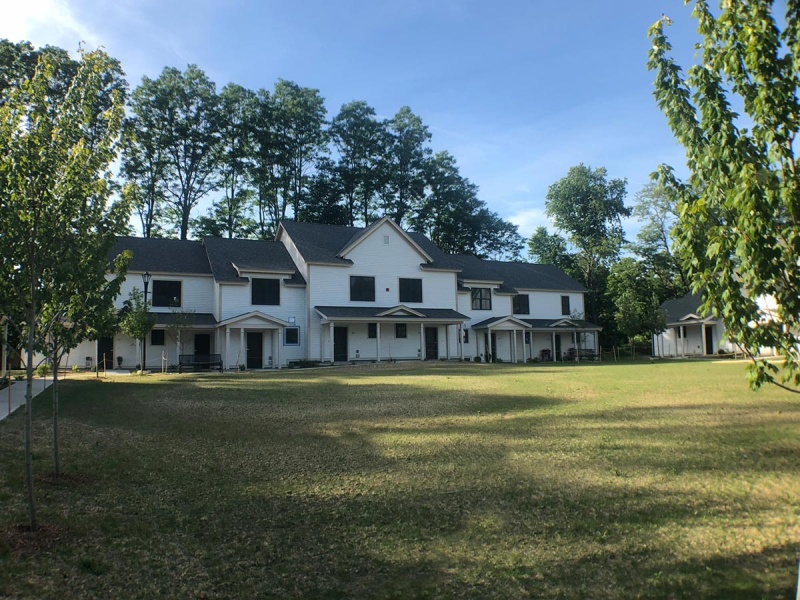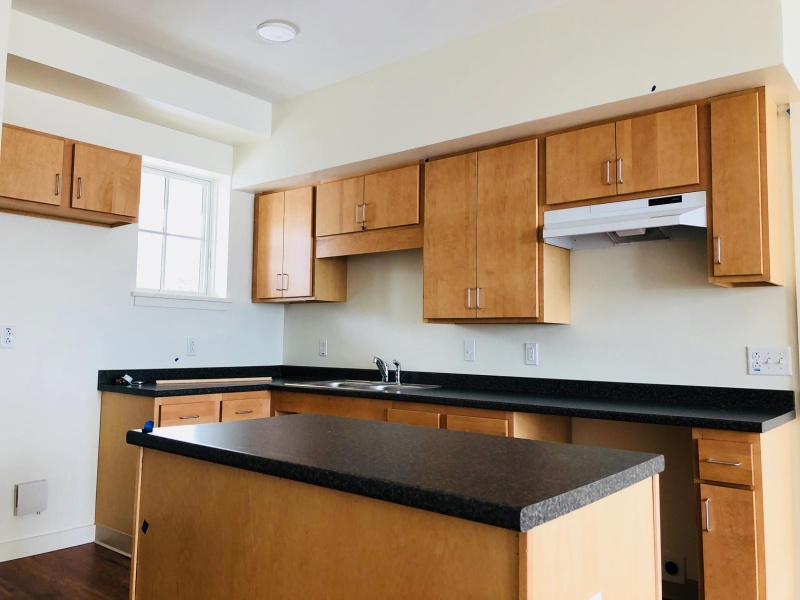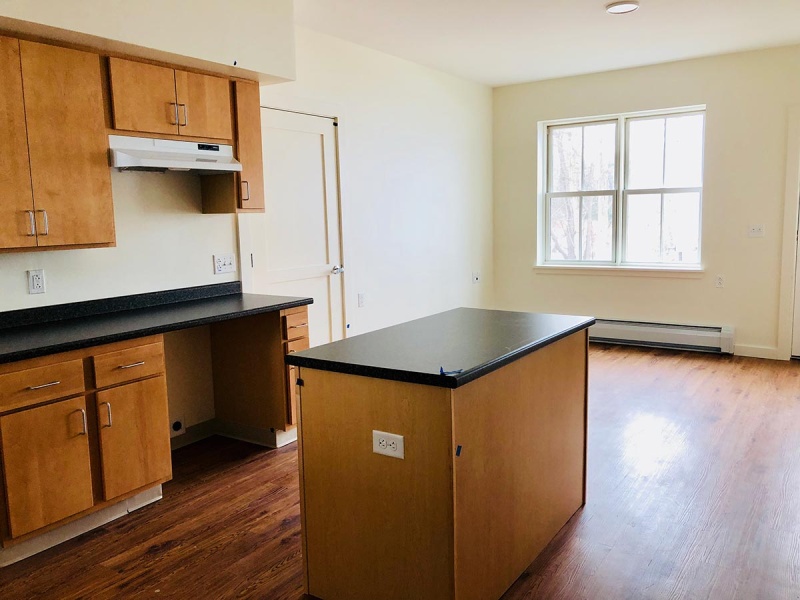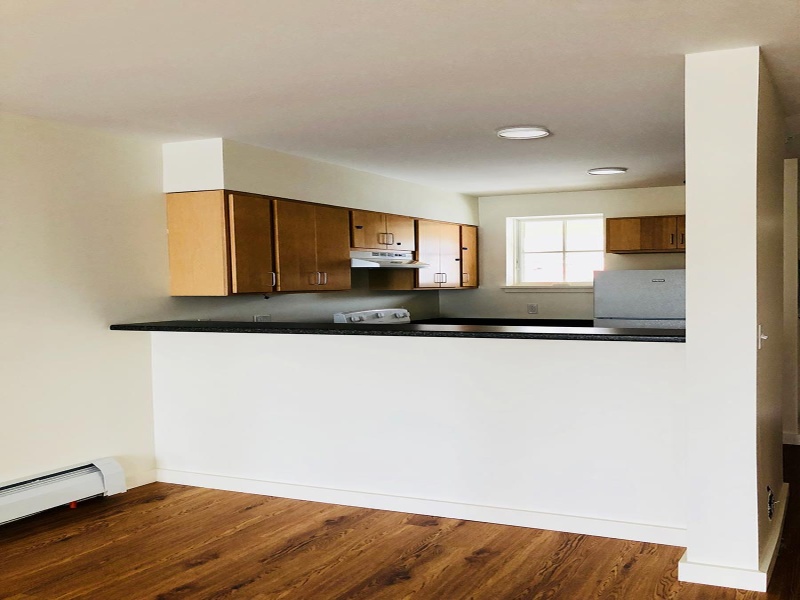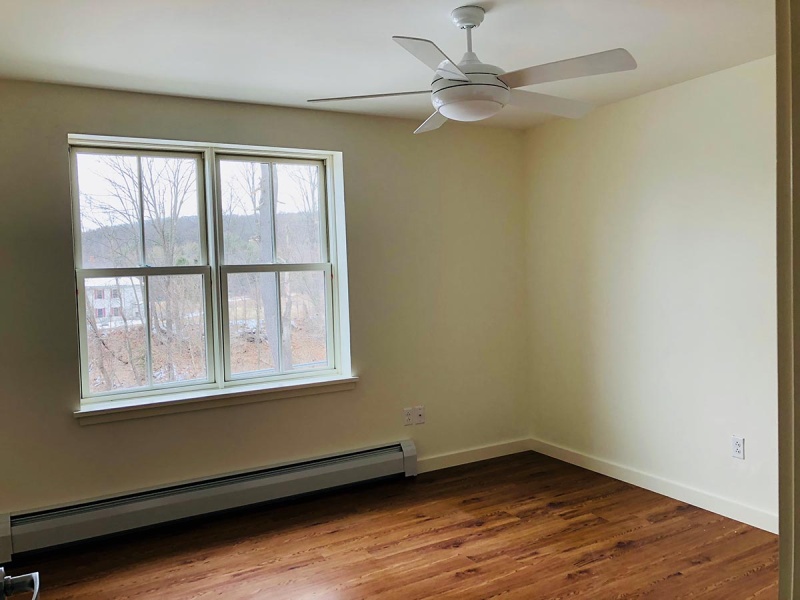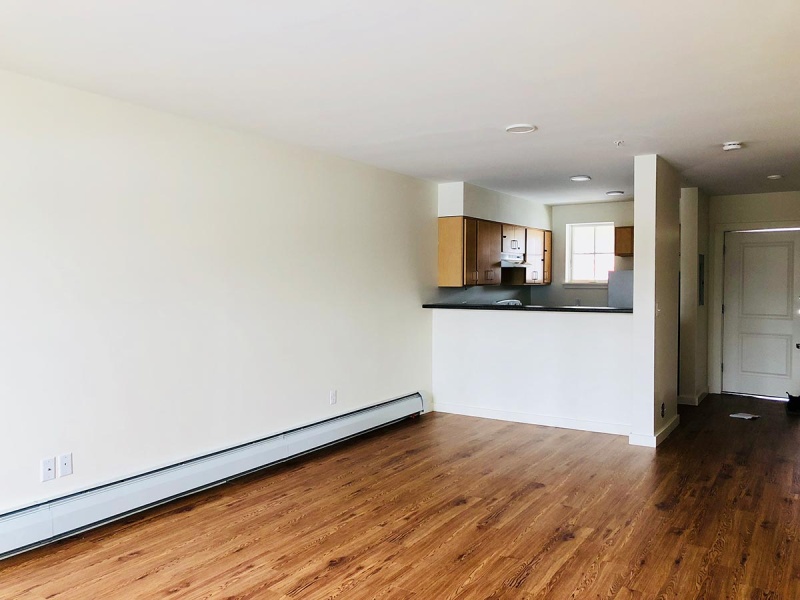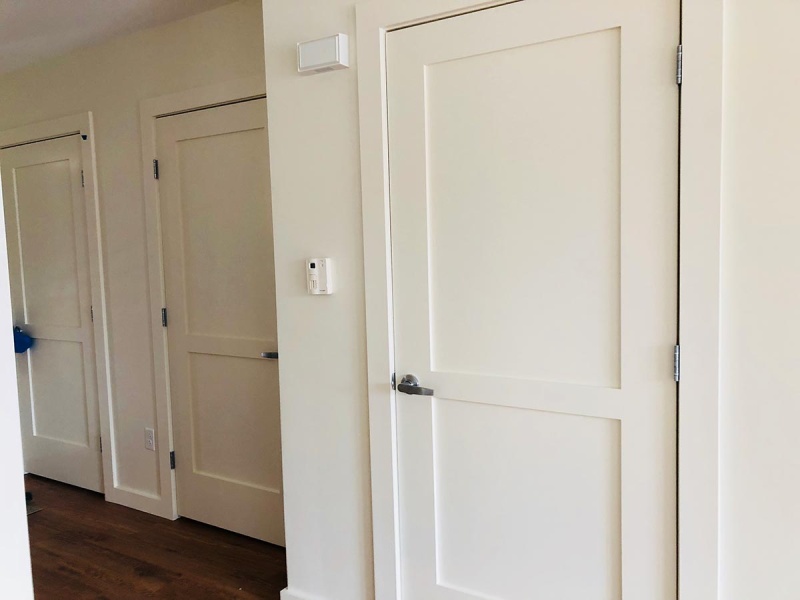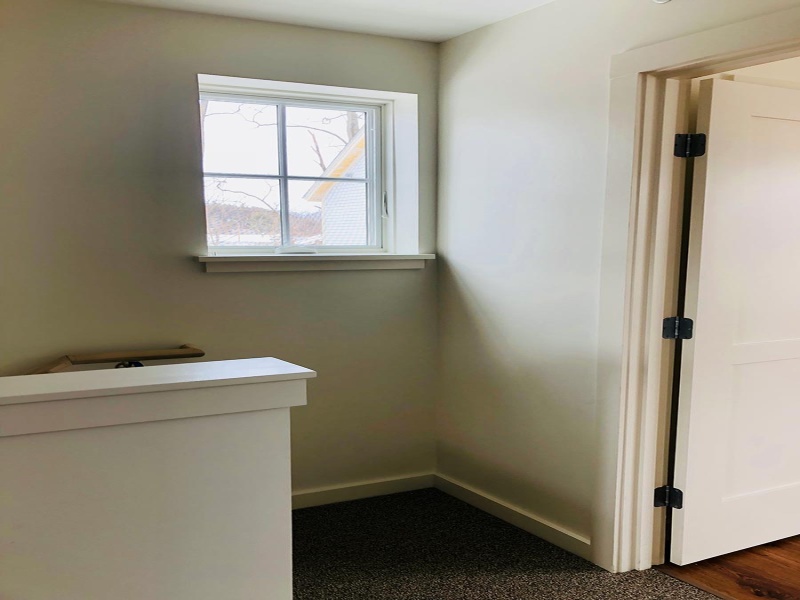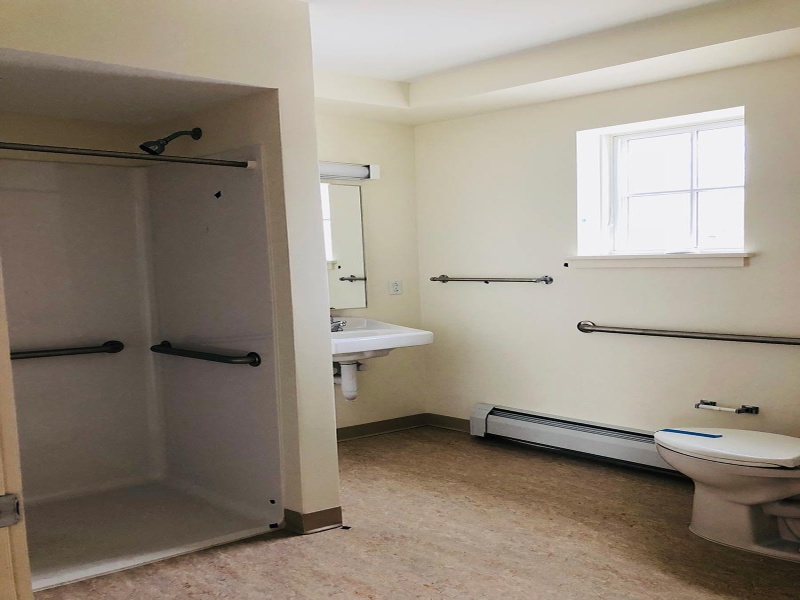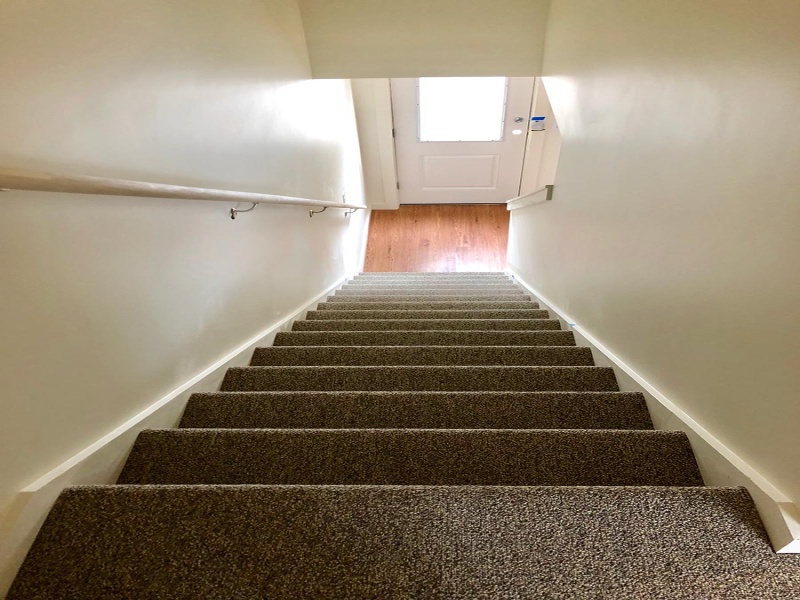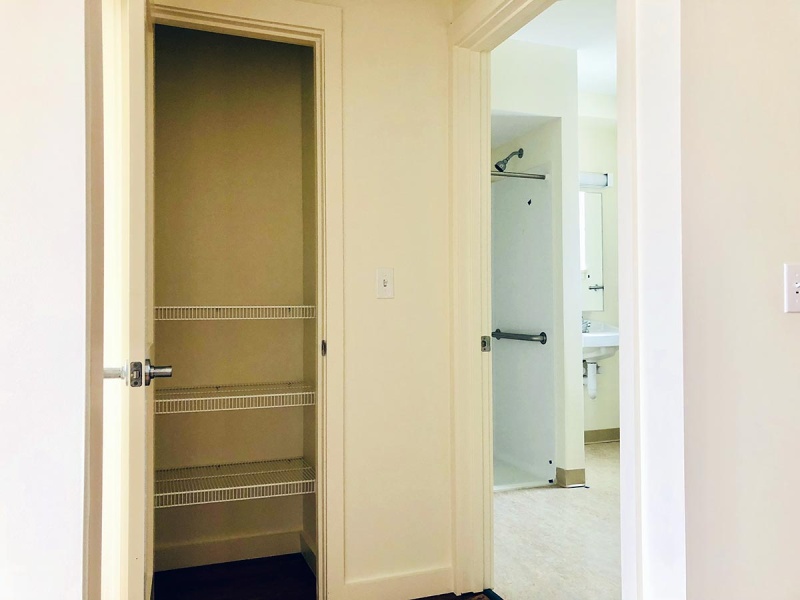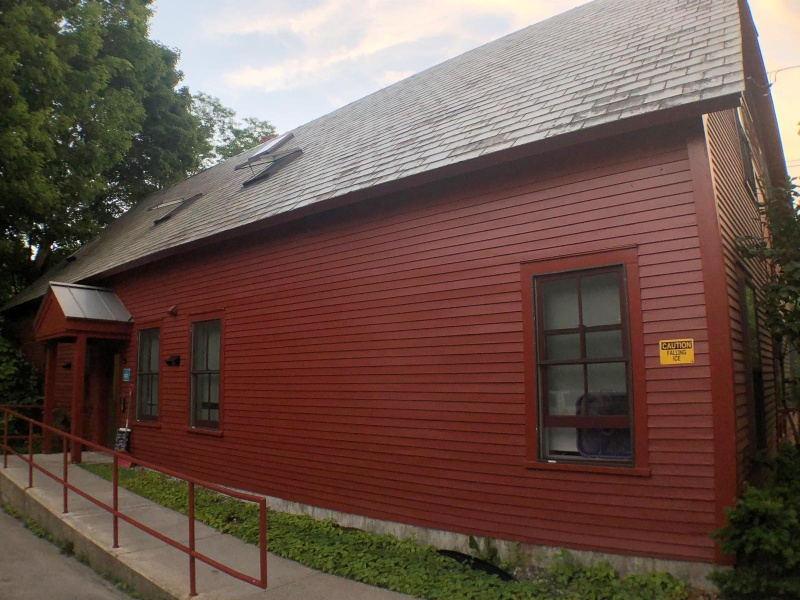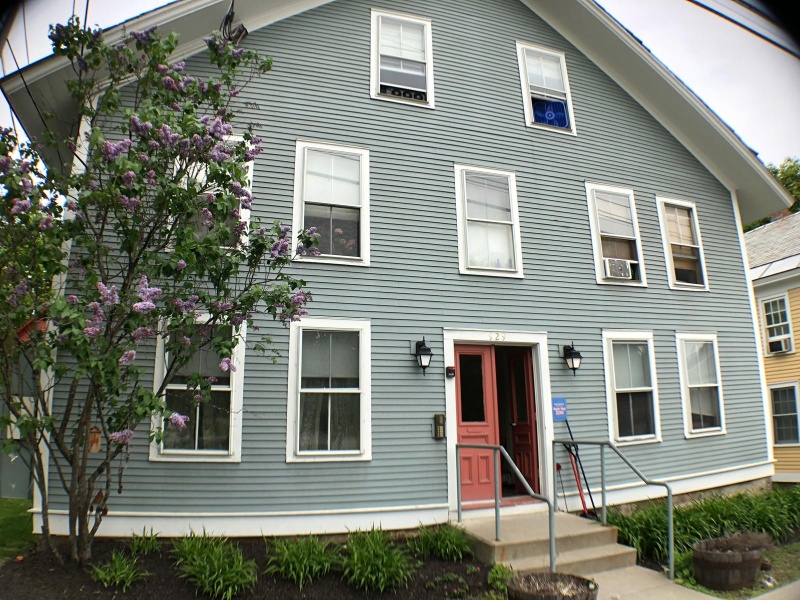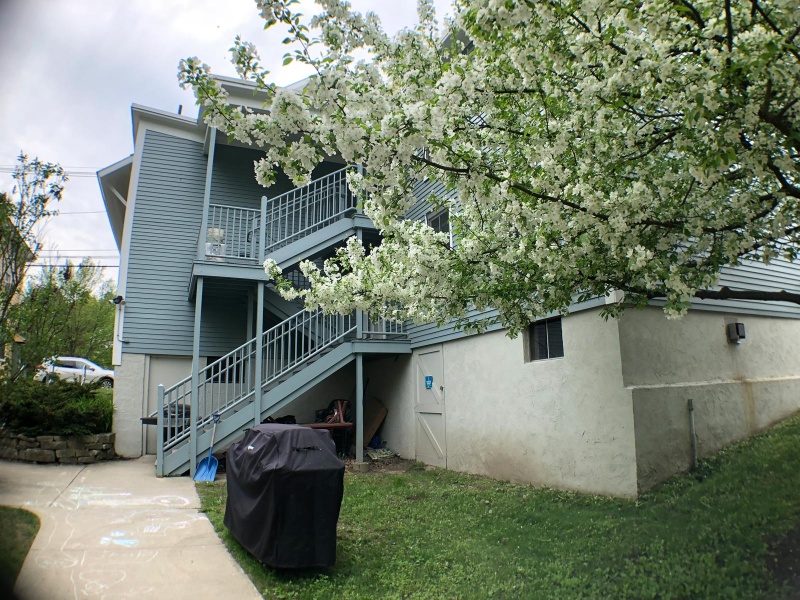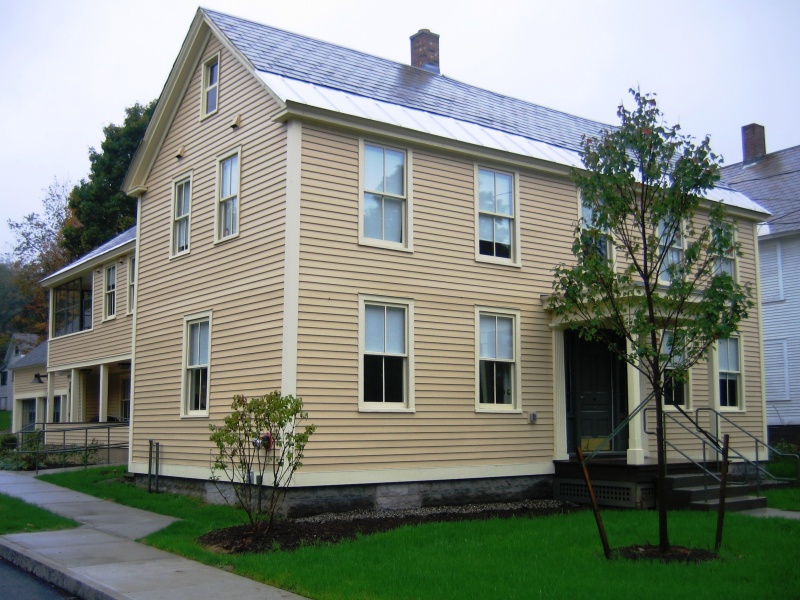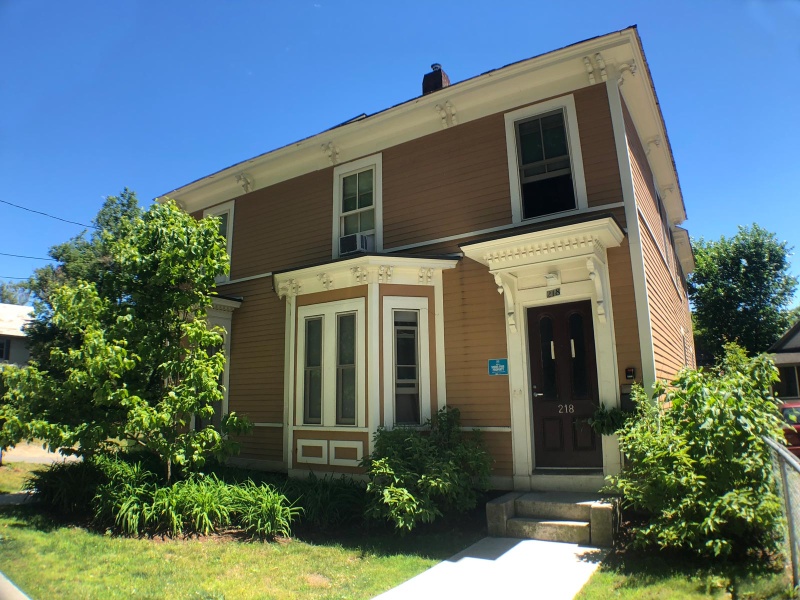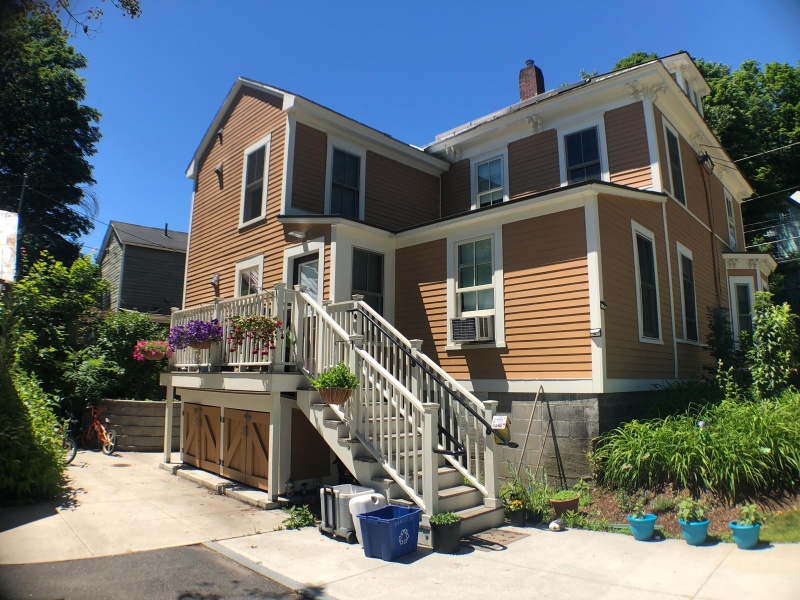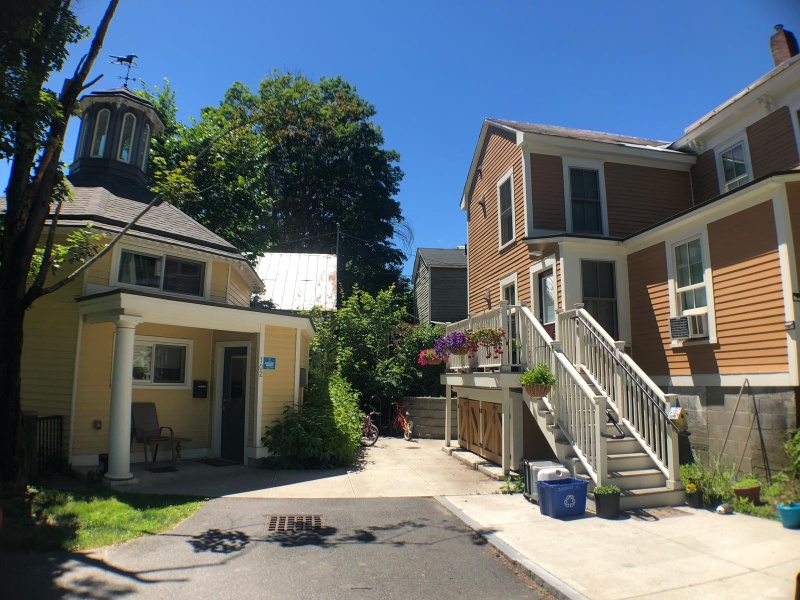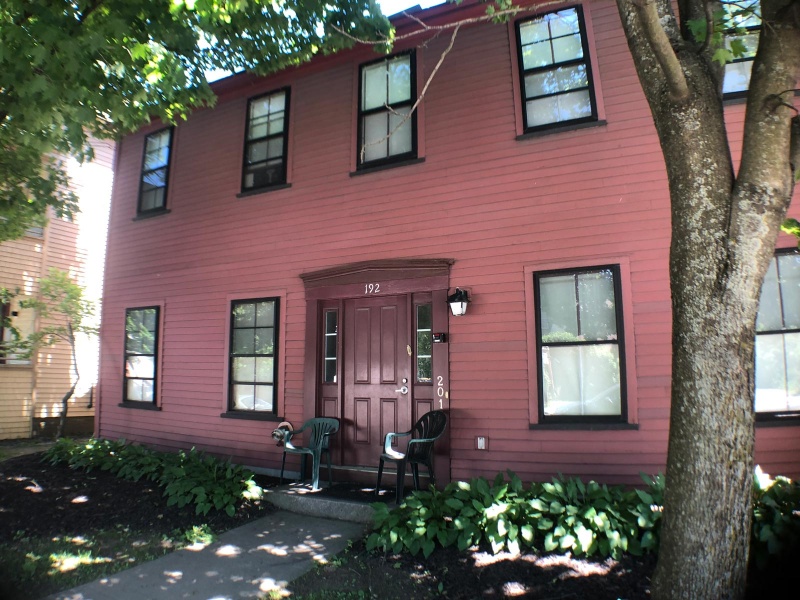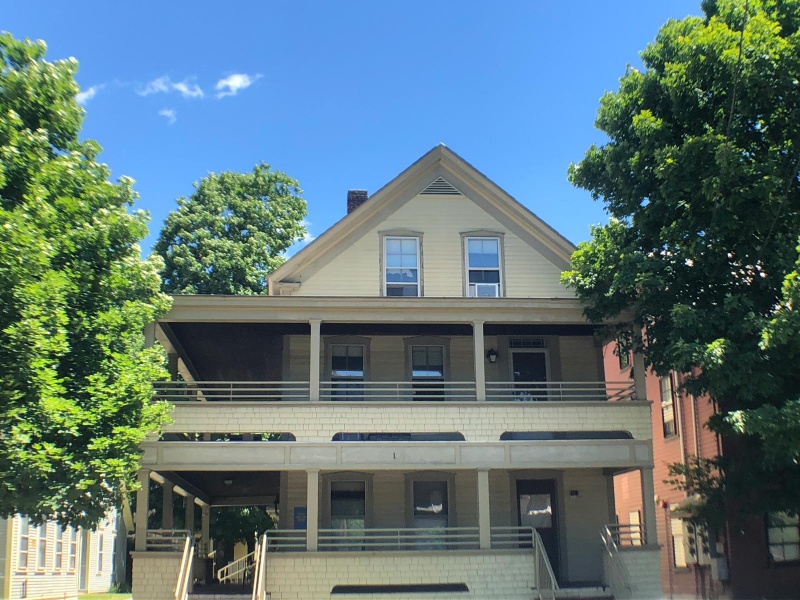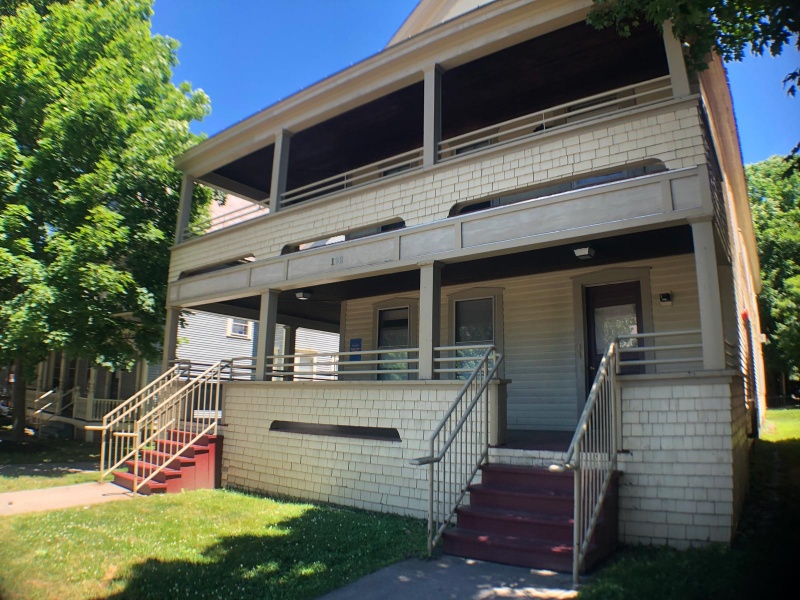Rent a Home
“[Windham & Windsor Housing Trust] was on my list of resources. I looked at the apartment — they really were quite impressive — I made the application and lo and behold, here I am…. It was so nice to simplify life…. It feels like a new freedom.”
—Norm
Get more home for your money.
Windham & Windsor Housing Trust offers quality rental properties at affordable rates, in convenient locations throughout Southern Vermont. Our properties are energy-efficient and meticulously maintained, with heat and hot water included. You’re going to love living here.
Cool Features
Thanks to a strong focus on energy efficiency…
All of our rents include heat and hot water;
Some of our buildings utilize solar domestic hot water panels;
We’ve done aggressive weatherization and insulation in many properties, including replacing or resealing older windows;
We’ve installed pellet boilers, and recently installed our first photovoltaic panels, which convert sunlight directly into electricity;
We’ve reduced our average annual per-unit oil consumption rate to 200 gallons, further helping to keep our apartments affordable!
RENTER’S RIGHTS
Created by FindLaw’s team of attorney writers and editors.
If your application to rent an apartment is rejected, you have a right to know why. It is illegal for a landlord to refuse your rental application for discriminatory reasons. This article focuses on the general rights of tenants, as governed by state and federal law. See Tips for Protecting Your Tenant Rights and Landlord Tenant Disputes FAQ for more information.
Federal Anti-Discrimination Law
Federal law prohibits discrimination on the basis of:
- Race
- Color
- Religion
- National origin
- Sex
- Age
- Familial status (including not allowing children, discrimination against pregnant women)
- Physical disability
- Mental disability (including alcoholism and past drug addiction)
State and Local Laws
States and many cities have similar housing laws, and yours may prohibit other kinds of discrimination, including:
- Marital status
- Sexual orientation
Additional Federal Anti-Discrimination Laws
Federal housing law prohibits a variety of discriminatory conduct:
- Advertising cannot contain any statement indicating a preference or limitation based on any of the protected classes listed above.
- The landlord may not make any similar implication or statement.
- A landlord cannot say that an apartment is not available when in fact it is available.
- A landlord cannot use a different set of rules for assessing applicants belonging to a protected class.
- A landlord cannot refuse to rent to persons in a protected class.
- A landlord cannot provide different services or facilities to tenants in a protected class or require a larger deposit, or treat late rental payments differently.
- A landlord cannot end a tenancy for a discriminatory reason.
- A landlord cannot harass you.
Note: The federal housing statutes do not apply to all rental property.
Service Animals
A landlord cannot refuse to rent to you because of a “no pets” policy if you have a trained helper animal, such as a seeing-eye dog, or a dog that helps you negotiate with a physical or mental disability. If the landlord does refuse, he or she has violated federal law, including the Americans with Disabilities Act.
Disclosure Requirements
Under the federal Fair Credit Reporting Act a landlord has to tell you if the rejection was based on negative credit information that came from a source other than your credit report.
- The federal Fair Credit Reporting Act also requires a landlord to tell you that, during the sixty days after he or she informs you that there was negative credit information, you may submit a written request for disclosure of the negative information.
- After receiving your request for disclosure of the negative information, the landlord must tell you “the nature of the information,” within a “reasonable time.” The law does not indicate how much detail the landlord must give you.
Right to a Habitable Home
You have a right to “habitable” premises. This is a fancy way of saying the apartment or house you are renting is fit to be lived in. Don’t compromise on this right. You have a right not to live in a hovel. Most states do not let a landlord put language in the lease stating that you “waive” the right (that is, give it up). The following conditions could make premises “uninhabitable.”
- Unsafe conditions, such as holes in the floor, plaster coming down from the ceiling, bad wiring, and the like.
- Gross infestation of vermin such as cockroaches or mice.
Lead Content
Under federal law, rental housing must be free of lead-based paint. It is more typical in older buildings, and up to 75 percent of the housing stock is still affected by it. No matter how old or new the premises are, watch for chipping paint, peeling paint, flaking paint, and paint dust.
Tenant Privacy
You have a right to privacy. Your landlord cannot come into your apartment or house without prior permission unless there is a true emergency like a fire or a flood in the bathroom.
The landlord must give you advance notice before coming into your apartment for other reasons, like making repairs or showing the unit to a potential tenant. Some states have laws that regulate these entries and set forth rules on how much advance notice the landlord must give, and whether the landlord must tell you what time he or she will enter and why.
Security Deposits
Your landlord cannot require a deposit that exceeds a limit set by your state’s law. Not all states have an upper limit, however. Also, the statute may allow different limits depending on your age (a lower limit for senior citizens, for example), whether you have a pet or waterbed, the length of your lease, or other factors.
A landlord must treat tenants equally on deposit requirements. If you are required to provide a larger deposit than one of your neighbors, you have the right to know why.
In many states the landlord must return the deposit to you at the end of the lease term with interest set by a statute.
Many states also have a statute stating how much time a landlord may take to return your deposit after you move out (usually thirty days).
If the entire deposit is not returned, your landlord must send you an itemized list of how the money was spent. Common conditions that lead to reduced deposit refunds include:
- Repairs to damages on the premises beyond mere wear and tear
- Cleaning to restore the premises to the condition they were in at the beginning of your lease (beyond normal wear and tear)
- Unpaid rent
Learn More About Your Rights as a Tenant from an Attorney
You have a right to take legal action against your landlord for breach of contract if they breach the lease, fail to return your deposit, take unwarranted deductions from your deposit, or fail to make repairs. Before proceeding, it’s a good idea to contact a local landlord-tenant attorney to discuss your particular situation and learn about your options.


